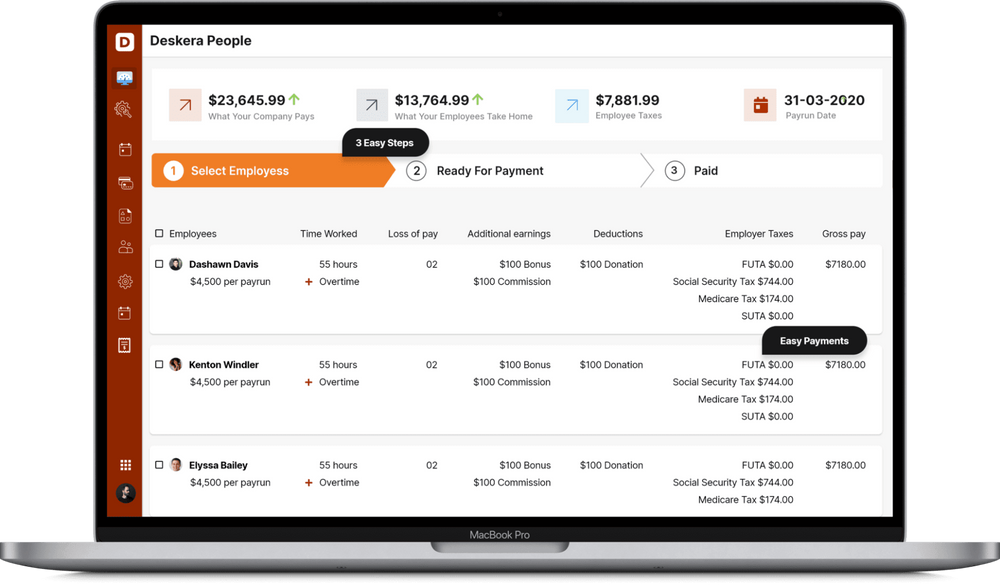Every state, union territory, and country is governed by a set of regulations, laws, and other legal mandates that the respective government passes for better governance of the region. It is from here that the concept of compliance emerges.
Any entity that wishes to operate its business, institution or establishment must do so within the ambit of these laws. When the laws are met and observed, that entity is said to be compliant. On the same note, the prescribed laws don’t stay the same over a period of time. As the demography and civics of a region evolve, so must the laws that govern it.
Thus, to cater to the ever-changing needs of the population of a jurisdictional area, the law bodies and the government work on constantly keeping the governance updated. By way of releasing constant updates, addendums and changes to the existing laws and regulations, the government ensures that suitable guidelines and mandates always exist that help the society run smoothly.
Let’s look at the latest compliances for Andaman and Nicobar Islands issued by various ministries of the state. These compliance updates have been released in 2022 by various government bodies for improving the governance of the respective industry. Each compliance update mentions:
- The issuing ministry
- Compliance update details
- Date issued
This blog will cover the following topics to help you understand compliances for Andaman and Nicobar Islands:
- What is Regulatory Compliance?
- Why is it Important to Stay Compliant?
- Compliances for Andaman and Nicobar Islands: ESI Act, 1948
- Compliances for Andaman and Nicobar Islands: the JERC
- Compliances for Andaman and Nicobar Islands: The Ministry of Labor and Employment
- Compliances for Andaman and Nicobar Islands: The Bio-Medical Waste Management Rules
- Compliances for Andaman and Nicobar Islands: The Indian Forest (Amendment) Act, 2019
- Compliances for Andaman and Nicobar Islands: The Andaman and Nicobar Islands Public Gambling (Amendment) Regulation, 2021
- Compliances for Andaman and Nicobar Islands: The Goods and Service Tax Rules
- Wrapping Up
- How Can Deskera Assist You?
- Key Takeaways
What is Regulatory Compliance?
Any business, establishment, institution or similar entity must follow the regulations, rules, mandates and laws prescribed to them in order to operate within legal boundaries. Such regulations may be prescribed by any concerned government body that regulates the activities concerned with your business. For example, for a factory owner, the labor laws of the region would apply, and these would be regulated by the department of labor of that region.
Certain specific industries may be required to follow additional regulations to ensure that their operations are safe for everyone. For example, medical establishments need to follow the waste management rules stipulated for them by the government authorities to ensure there is no spread of diseases.
Why is it Important to Stay Compliant?
The government and its bodies issue regulatory compliances to ensure that businesses operate safely, ethically and with everyone’s interests in mind. To avoid a situation where unfair treatment occurs for anyone concerned with a business, the guidelines prescribed in the regulations help the authorities set it right. For example, the Minimum Wages Act for wage workers guarantees them a certain pay floor below which no employer can reduce their compensation.
Sometimes, these regulations are legally binding and a breach can entail a full-blown lawsuit or penalties depending on severity. It is important to stay compliant with the regulations, as it also helps a business or establishment to protect its reputation and resources. For example, for a medical establishment to not comply with all associated regulations could mean the cancellation of a license, heavy fines and penalties.
Compliances for Andaman and Nicobar Islands: ESI Act, 1948
The Ministry of Labor and Employment (MoL&E), expressing its intentions to extend the provisions contained in the Employees’ State Insurance Act of 1948 to include more establishments, has issued an update to it.
Under the ESI Act of 1948, the establishments listed below are now included under the ambit of this Act in the event they employ 10 or more persons (or had 10 or more persons in their employ in the last 12 months). Such establishments must provide for their employees in accordance with the provisions enlisted therein.
- Restaurants
- Road motor transport establishments
- Shops
- Hotels
- Newspaper agencies
- Educational institutions
- Medical institutions
- Cinemas
This compliance update has come into effect on May 30th, 2022.
Compliances for Andaman and Nicobar Islands: the JERC
For the licensees applying for transmission and distribution of electricity in the states and union territories of Goa, Andaman and Nicobar Islands, Daman and Diu, Dadra and Nagar Haveli, Lakshadweep and Puducherry, the Joint Electricity and Regulatory Commission of Andaman and Nicobar Islands have issued the Transmission and Distribution Licensing Regulations on 10th of February, 2021.
Any entity desiring to take up the transmission and distribution of electricity in the regions stated above must submit an application and a fee as stipulated in the notified Regulations, following all instructions and compliances as mentioned.
These Regulations came into effect on the 10th of February, 2021.
Compliances for Andaman and Nicobar Islands: The Ministry of Labor and Employment
The Ministry of Labor and Employment of Andaman and Nicobar Islands has announced a revision in the rates of minimum wages applicable to the workers of scheduled employment. These rates have been revised for all the classes of wage workers: skilled, unskilled, semi-skilled and highly skilled.
The revised rates as applicable with effect from 1st January 2022, are as follows:
- The minimum wage for unskilled workers has been revised to ₹507 per day
- The minimum wage for semi-skilled workers has been revised to ₹564 per day
- The minimum wage for skilled workers has been revised to ₹649 per day
- The minimum wage for highly skilled workers has been revised to ₹707 per day
Compliances for Andaman and Nicobar Islands: The Bio-Medical Waste Management Rules
The Directorate of Animal Husbandry of Andaman and Nicobar Islands has issued regulations to the following institutions to implement, at the earliest, the provisions stated under the Bio-Medical Waste Management Rules of 2016:
- Hospitals
- Dispensaries
- Farms
- Sub-dispensaries
- Any other establishment that is covered under the ambit of the Bio-Medical Waste Management Rules
The rules also require such institutions to take action regarding:
- Health check-up of those who handle animals for Hepatitis-B and Tetanus
- Annual Report to be submitted by such establishments to the authorities mentioned in the said Rules
- The monthly record needs to be displayed on the website, and a daily register needs to be maintained and updated
This compliance was notified on the 2nd of March, 2020.
Compliances for Andaman and Nicobar Islands: The Indian Forest (Amendment) Act, 2019
On 18th of April, 2019, the Environment and Forest Department of Andaman and Nicobar Islands issued amendments to the Indian Forest Act of 1927. The Department invited comments on the same from the State and Union Territory governments.
The Amendments have been made in many clauses of the Act, some of which include:
- Bar on accrual of forest rights
- Treatment of claims that relate to the practice of shifting cultivation
- Power to acquire land over which right is claimed
- Declaring conservation area for carbon sequestration
- Formation of village-forests
- Protected forests
- Exploration of forests in certain cases
Amendments have been made in the entire Act to stay in step with the times.
Compliances for Andaman and Nicobar Islands: The Andaman and Nicobar Islands Public Gambling (Amendment) Regulation, 2021
In December of 2021, the Secretariat of Andaman and Nicobar Islands announced amendments to The Andaman and Nicobar Islands Public Gambling Regulation with quite a few changes. Below is a brief list of some of the sections for which changes were sought for this Regulation:
- Section 3 of the Principal regulations stipulating the punishment for the first-time offender of gambling laws in the state
- Section 4 of the Principal regulations prescribes punishment for being in a gambling house, whether or not engaged in gambling
- Section 9 of the Regulations pertaining to searches
A few new sections were added to the Principal regulations, for example, exemption provided to the games of skill, game authorization, license cancellations and more.
Compliances for Andaman and Nicobar Islands: The Goods and Service Tax Rules
On the 4th of September 2018, the Central Board of Indirect Taxes (CBIC) amended the Central Goods and Service Tax Rules for the eighth time. Below is a list of the most important changes made to these Rules:
- For the provision which gives information about canceling a GST registration, an insertion was made that the applicant must square off all the pending tax dues in addition to the interest owed, the late fee incurred, and any other penalties that may have accumulated before the registration cancellation are considered
- The clause in the original rules that prescribes the formula of refund for the input tax credit accumulated, an insertion is made to define the term “Total Adjusted Turnover”
- For moving goods, the driver in charge of the vehicle carrying the supply needs to be carrying a delivery challan and e-way bill that is incorporated into his Radio Frequency Identification Device
Wrapping Up
Every establishment, regardless of its nature, needs to look up the government regulations, rules, circulars, acts and laws within its own industry and associations to ensure they operate lawfully and fairly. They are an important part of governance that help run the region with a good amount of fairness and equitability.
How Can Deskera Assist You?
Deskera People helps digitize and automate HR processes like hiring, payroll,leave, attendance, expenses, and more. Simplify payroll management and generate payslips in minutes for your employees.

Key Takeaways
The Andaman and Nicobar Islands are a union territory of India with their own set of regulations and compliances that businesses operating there need to be aware of. The government keeps updating the compliances for Andaman and Nicobar Islands from time to time to make sure that they are in accordance with the latest requirements of governance.
A lot of these changes happen in the form of amendments to previously existing acts and regulations. The concerned ministry or department is responsible for drafting these changes and notifying them to the public so that the concerned entities may be informed.
A good example of changes in regulations is how every year the government revises the minimum wages for the wage-workers in their region. This accounts for the cost of living prevailing during that year, helping the wage workers maintain sustenance.
Related Articles












